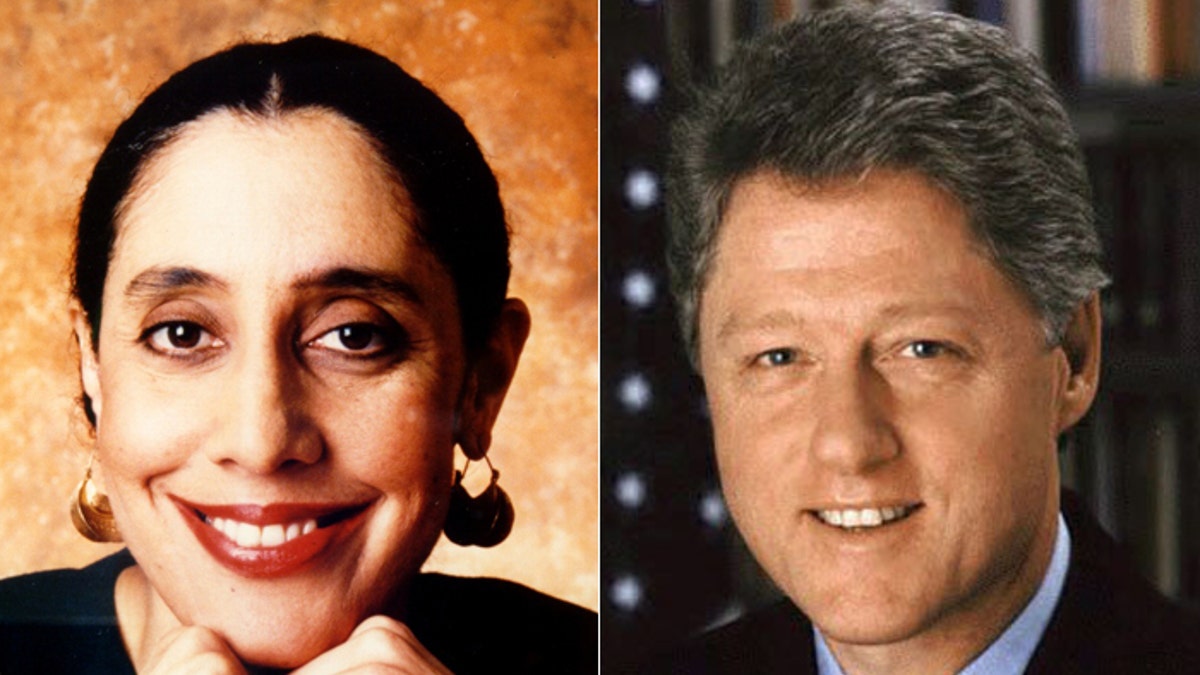
The nomination of Harvard Law Professor Lani Guinier to a Justice Department post was one of Clinton's early missteps.
When President Bill Clinton nominated a controversial Harvard University professor for a key Justice Department post, critics had a field day — and a top adviser convinced the commander-in-chief that it was “the wrong fight at the wrong time.”
A memo from Bill Galston — a top policy adviser at the time who is now a senior fellow at the Brookings Institute — warned Clinton that appointing a woman who was being painted by critics as a “quota queen” and whose views on race were outside the mainstream could be politically damaging. Although Lani Guinier’s supporters said her record and writings were being distorted, Clinton would eventually withdraw the nomination for the job of assistant attorney general for civil rights.
[pullquote]
“I cannot say for sure that Prof. Guinier is unconfirmable,” Galston wrote in the memo, one of scores released Friday afternoon by the National Archives.“[But] whatever the outcome may be, this is the wrong fight at the wrong time.”
The memo, dated June 1, 1993, was sent just three days before Clinton withdrew the nomination. Clinton, who was just months into what would become a turbulent presidency, had kicked a hornet’s nest with what should have been a low-profile nomination.
“Boy, that was a long time ago,” Galston told FoxNews.com. “As I recall, I spent most of the memo simply analyzing her legal writings, because I wasn’t sure, frankly, that the president and the rest of the White House had sat down to read them.
“I just wanted the president to understand as much of the background as possible so that he would not be blindsided, and have information used against him by his political opponents, of which there were many.”
Galston pored over Guinier’s old law review articles and other writings before concluding for Clinton that “the perspective she would bring to your Justice Department would ill-serve the interests of our country and your administration.”
Galston believed that Guinier’s writing, particularly on race and the Voting Rights Act, demonstrated that she believed “white racism [was] pervasive and all but intractable” and that blacks politicians who appeal to a multi-racial electorate loser their “authenticity.”
Guinier, who remains a Harvard Law professor, did not immediately respond to a request for comment. But history indicates Clinton took Galston’s advice, if reluctantly, as he embarked on an administration marked mostly by centrist governance.
"I would gladly fight this nomination to the last moment if nobody wanted to vote for her if it were on grounds I could defend," Clinton said at the time. "The problem is that this battle will be waged based on her academic writings, and I cannot fight a battle that I know is divisive, that is uphill, that is distracting to the country if I do not believe in the ground of the battle."




